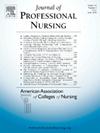Integrating generative artificial intelligence in a writing intensive course for undergraduate nursing students
IF 2.9
3区 医学
Q1 NURSING
引用次数: 0
Abstract
While generative artificial intelligence (AI) has been around for many years, it has only recently become available for use by the public. This powerful resource has changed the landscape for higher education and many instructors fear the negative effects it can have on academic integrity and student creativity in the writing process. However, it is certain that AI is here to stay, and it is crucial that educators embrace this technology and teach students to use this resource carefully and wisely.
Communication is an essential component in nursing practice and cultivating competent writing skills is a vital aspect of nursing education. However, nursing students struggle with scholarly writing especially at the undergraduate level. Integrating generative artificial intelligence into a writing intensive course offers a unique approach to aid students in improving their writing. In this pilot project, students were given an assignment to actively engage with generative artificial intelligence and critically analyze the response using current nursing literature to support or refute the output. This assignment was used to springboard class discussion on advantages and disadvantages of using artificial intelligence for scholarly writing. This novel approach has the potential to build confidence and competence in novice writers which supports their success in nursing school and in clinical practice.
将生成式人工智能整合到本科护理学生写作强化课程中
虽然生成式人工智能(AI)已经存在多年,但直到最近才可供公众使用。这种强大的资源改变了高等教育的格局,许多教师担心它会对学术诚信和学生写作过程中的创造力产生负面影响。然而,可以肯定的是,人工智能将继续存在,教育工作者接受这项技术并教学生谨慎明智地使用这项资源是至关重要的。沟通是护理实践的重要组成部分,培养称职的写作技能是护理教育的重要方面。然而,护理专业的学生在学术写作方面遇到了困难,尤其是在本科阶段。将生成式人工智能整合到写作强化课程中提供了一种独特的方法来帮助学生提高他们的写作水平。在这个试点项目中,学生们的任务是积极参与生成式人工智能,并使用当前护理文献批判性地分析响应,以支持或反驳输出。这个作业是用来作为课堂讨论的跳板,讨论在学术写作中使用人工智能的利弊。这种新颖的方法有可能建立信心和能力的新手作家,支持他们在护理学校和临床实践的成功。
本文章由计算机程序翻译,如有差异,请以英文原文为准。
求助全文
约1分钟内获得全文
求助全文
来源期刊
CiteScore
4.80
自引率
8.00%
发文量
153
审稿时长
52 days
期刊介绍:
The Journal will accept articles that focus on baccalaureate and higher degree nursing education, educational research, policy related to education, and education and practice partnerships. Reports of original work, research, reviews, insightful descriptions, and policy papers focusing on baccalaureate and graduate nursing education will be published.

 求助内容:
求助内容: 应助结果提醒方式:
应助结果提醒方式:


